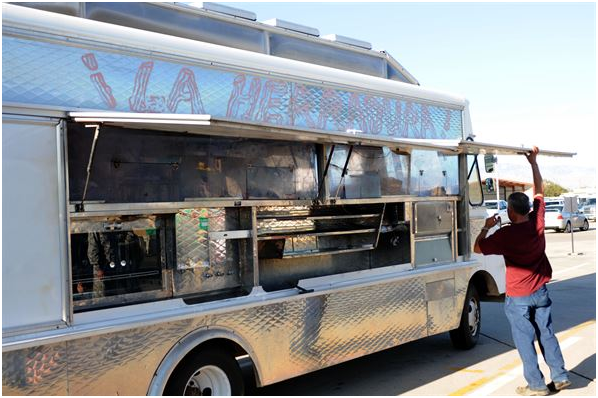A mobile catering business is an enjoyable, flexible career that is perfect for a chef or an entrepreneur. If you want to start your own catering business, here is a full guide to setting up a mobile catering business, including costs and legalities.
Costs
You can start a mobile catering business with a fairly small investment of around £5,000, but you can also spend up to £20,000 if you really want to make the splash. One of the main costs is buying equipment, but you can lower this cost by buying second-hand equipment. Of course, if you buy second-hand equipment you should ensure that it meets all legal standards – for instance, a gas kit needs to be CE marked. Some types of cuisine also require less equipment, so they are cheaper to make.
Most caterers buy cooking equipment, fridges, freezers, food storage equipment, something for hand washing, insurance, a first aid kit, up to date gas certificates, licenses, food, drink, temperature probes and fire safety equipment. You may also need to pay for staff training and staff wages.
If you want to buy professional catering supplies, check out 247cateringsupplies.co.uk.

Legal Considerations
If you want to run a mobile catering business you will need to register your business with your local Environmental Health Department.
You will also need to get the appropriate licenses to sell food, and you will need to officially register as a business. Once you have done this you will be able to do a risk assessment and get a food safety and food hygiene certificate to show that your food is safe to eat. You will also need to get an electrical and gas safety certificate.
Once this is completed you should get insurance for your business. This is very useful if you encounter a problem such as a kitchen fire or damage to the equipment!
There are a few other things that you will also need to arrange before you can legally work as a mobile catering business. Here is a handy checklist that you can use to ensure you are ready for business:
A Due Diligence System
A HACCP Flowchart
A hand washing area
Cleaning products
Established training requirements for all new employees
A strong health and safety procedure that all staff are aware of





